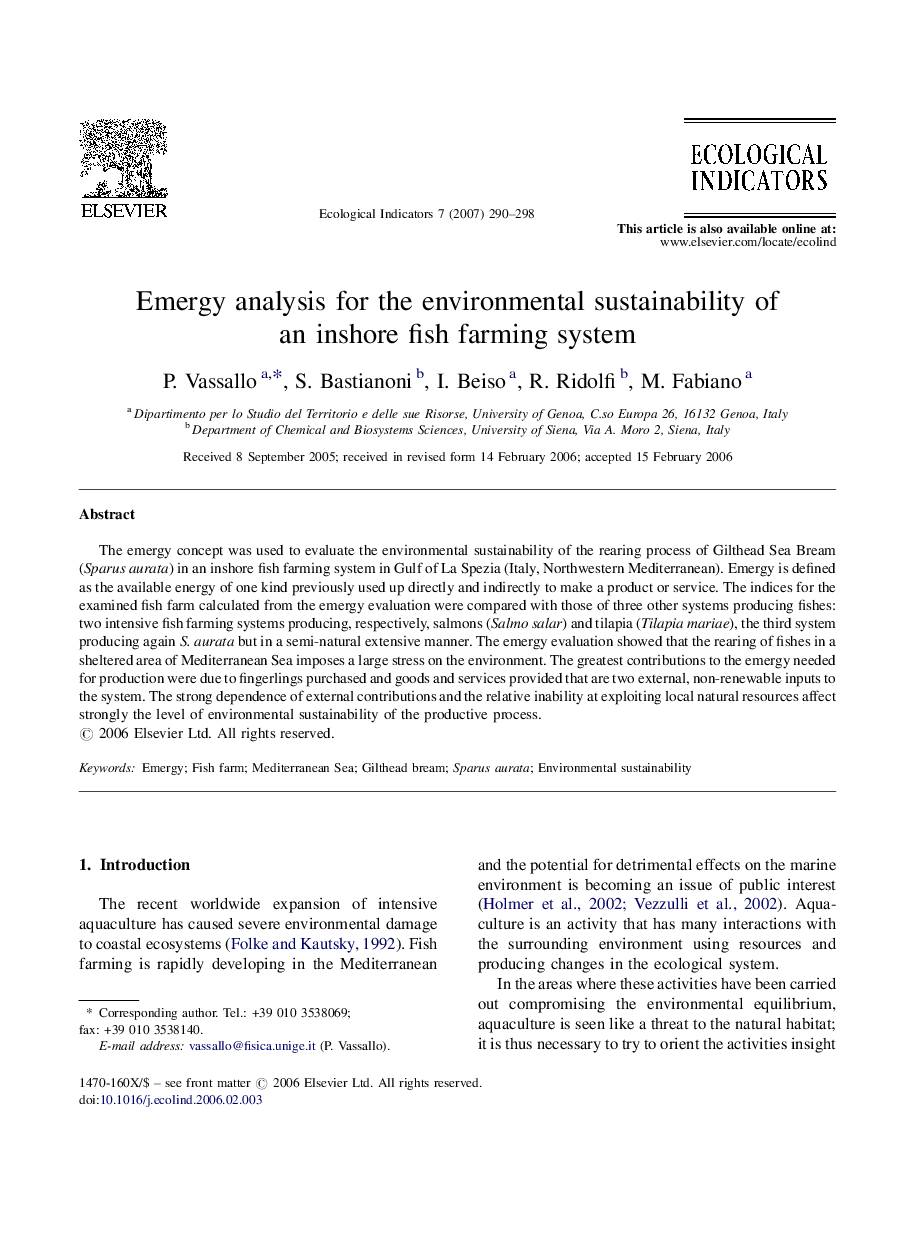| Article ID | Journal | Published Year | Pages | File Type |
|---|---|---|---|---|
| 4374488 | Ecological Indicators | 2007 | 9 Pages |
The emergy concept was used to evaluate the environmental sustainability of the rearing process of Gilthead Sea Bream (Sparus aurata) in an inshore fish farming system in Gulf of La Spezia (Italy, Northwestern Mediterranean). Emergy is defined as the available energy of one kind previously used up directly and indirectly to make a product or service. The indices for the examined fish farm calculated from the emergy evaluation were compared with those of three other systems producing fishes: two intensive fish farming systems producing, respectively, salmons (Salmo salar) and tilapia (Tilapia mariae), the third system producing again S. aurata but in a semi-natural extensive manner. The emergy evaluation showed that the rearing of fishes in a sheltered area of Mediterranean Sea imposes a large stress on the environment. The greatest contributions to the emergy needed for production were due to fingerlings purchased and goods and services provided that are two external, non-renewable inputs to the system. The strong dependence of external contributions and the relative inability at exploiting local natural resources affect strongly the level of environmental sustainability of the productive process.
